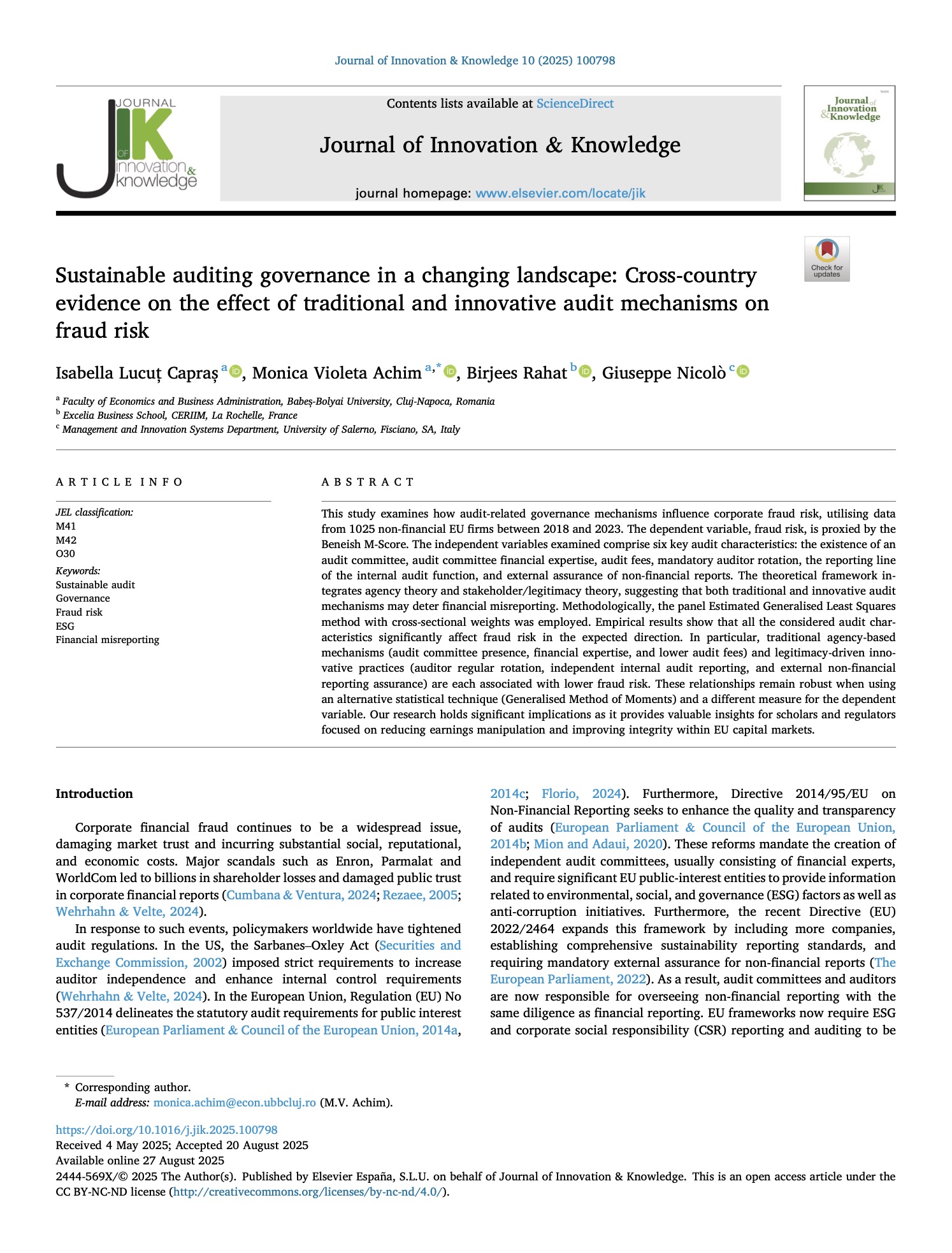|
|
|
Lucuț Capraș, I.; Achim, M.V.; Rahat, B. & Nicolò, G. (In press) Journal of Innovation & Knowledge [Core Economics, Q1]
Autor:
Cristina Alexandrina Stefanescu
Publicat:
04 Septembrie 2025
Lucuț Capraș, I.; Achim, M.V.; Rahat, B. & Nicolò, G. (In press) Sustainable auditing governance in a changing landscape: Cross-country evidence on the effect of traditional and innovative audit mechanisms on fraud risk. Journal of Innovation & Knowledge.
DOI: https://doi.org/10.1016/j.jik.2025.100798
✓ Publisher: Elsevier
✓ Categories: Business; Management/i>
✓ Article Influence Score (AIS): 2.161 (2024) / Q1 in all categories.
Abstract: This study examines how audit-related governance mechanisms influence corporate fraud risk, utilising data from 1025 non-financial EU firms between 2018 and 2023. The dependent variable, fraud risk, is proxied by the Beneish M-Score. The independent variables examined comprise six key audit characteristics: the existence of an audit committee, audit committee financial expertise, audit fees, mandatory auditor rotation, the reporting line of the internal audit function, and external assurance of non-financial reports. The theoretical framework integrates agency theory and stakeholder/legitimacy theory, suggesting that both traditional and innovative audit mechanisms may deter financial misreporting. Methodologically, the panel Estimated Generalised Least Squares method with cross-sectional weights was employed. Empirical results show that all the considered audit characteristics significantly affect fraud risk in the expected direction. In particular, traditional agency-based mechanisms (audit committee presence, financial expertise, and lower audit fees) and legitimacy-driven innovative practices (auditor regular rotation, independent internal audit reporting, and external non-financial reporting assurance) are each associated with lower fraud risk. These relationships remain robust when using an alternative statistical technique (Generalised Method of Moments) and a different measure for the dependent variable. Our research holds significant implications as it provides valuable insights for scholars and regulators focused on reducing earnings manipulation and improving integrity within EU capital markets.

inapoi la stiri  vezi evenimentele
vezi evenimentele  home
home 
|